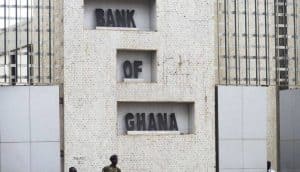Join Our Telegram channel to stay up to date on breaking news coverage
Ernest Addison, the current governor of the Bank of Ghana, has revealed that the country’s government is looking into the feasibility of issuing its own central bank digital currency (CBDC). Speaking in a keynote address at the 23rd National Banking Conference on November 26, the policymaker explained that Ghana’s apex banking institution is currently working with key stakeholders to explore the viability of a CBD project. He added that the project would be part of a regulatory sandbox, with the possibility of issuing an e-cedi (an electronic version of the cedi, Ghana’s fiat currency) in the nearest future.
CBDC for Digital Financial Transformation
While he didn’t provide much detail on the asset, it is expected that it will be based on the blockchain, just like CBDCs that have been proposed by several other countries in the past.
The most important thing about a central bank issued digital currency is that it would finally enable the separation of the payment system from the banking system.
This will disrupt banking, finance, credit, businesses and contracts in ways we cannot imagine.
— SonaliRanade (@sonaliranade) November 27, 2019
In the keynote, Addison claimed that the digital currency was a part of the Ghanaian government’s efforts to digitize the financial and banking sector. He expressed his belief that digital financial technologies will play a significant role in charting the course for the banking experience, claiming that mobile cash transactions had increased from 982 million cedis to 1.4 billion cedis between 2017 and 2018.
Given all of this, Addison added that the Central Bank had authorized the Ghana Commercial Bank- the largest commercial bank in the land- to issue e-money. As he put it, the bank will create electronic assets whose values will be backed by their equivalent fiat amount, thus allowing citizens to access GCB-issued e-wallets.
This testing phase is most likely the sandbox, and it should provide an archetype for whichever digital currency the Central Bank wants to issue in the future.
Countries Are Gravitating Towards CBDCs
Ghana is surely not the only country that has been reported to be working on the prospects of launching a digital national currency. Several countries have confirmed looking into the project in the past, and while most of these countries have yet to issue an asset, it goes to show how the concept of state-backed assets is beginning to gain traction among countries.
China’s central bank says its digital currency (DCEP) is only for use domestically to reduce the dominance of Alipay and WeChat pay.
Ok China.
DCEP will be used to bank those unbanked by US sanctions.
— Jason A. Williams (@GoingParabolic) November 28, 2019
Back in August 2019, the National Bank of Rwanda announced that it was researching the possibilities of digital national currency and how such a project could increase payment efficiency and help with sustainable economic growth. However, perhaps the most exciting state asset for the year, despite not being introduced yet, will be that of China. The world’s second-largest economy has been rumored to be looking into a state asset for some time now, and several insiders have predicted that it will be launched within a year.
Even the United States has caught the CBDC bug as well. On November 20, Zachary Warmbrodt, a financial reporter, announced on Twitter that the U.S Federal Reserve is looking into the development of a CBDC, as well as the effects of such an asset on the country’s monetary system.
Citing a letter from Fed Chairman Jerome Powell to the House of Representatives, Warmbrodt claimed that while the regulator isn’t working on an asset yet, it is keeping close tabs on what the implications of launching one will be.
Join Our Telegram channel to stay up to date on breaking news coverage


